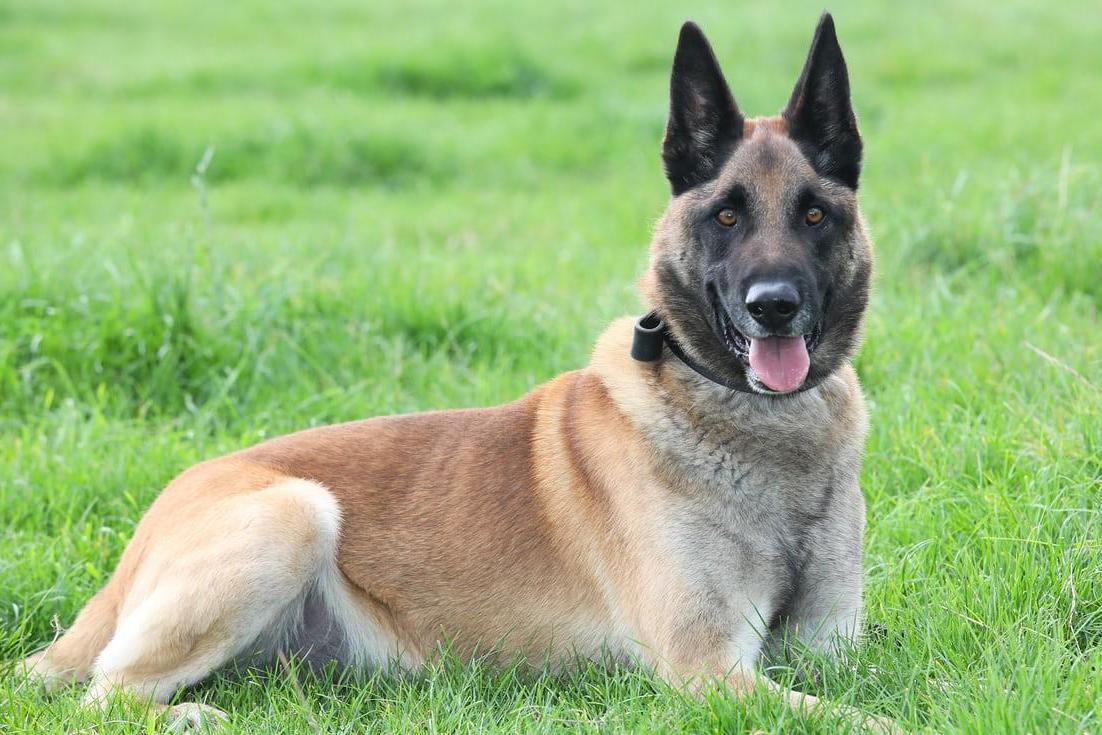Dogs don't belong in the army, so stop celebrating Mali's 'Victoria Cross'
The technology already exists to send in robots and drones instead of dogs – so why are we still allowing animals to be maimed and killed in the name of human wars which they have no stake in?


Mali , a dog with the Special Forces who sniffed out Taliban booby traps in Kabul, was recently awarded the Dickin Medal – the animal equivalent of the Victoria Cross – for saving the lives of British troops. While he certainly deserves this honour, we shouldn't gloss over the fact that animals don't claim allegiance to a nation. They don't choose sides. Yet we charge them with duties that are considered too dangerous for humans – such as bomb detection – but that are, obviously, equally dangerous for them.
Mali, it should be noted, was badly injured by shrapnel. And Diesel , a dog working with French police, was blown up while searching for booby traps following the terror attacks in Paris in 2015.
Unlike humans in the Armed Forces and police, canine officers don't choose to enlist yet still risk their lives for the community. Working dogs' lives have, in some places, improved over time – for example, efforts by PETA US and others led to the passing, in 2000, of US legislation that finally allowed “retired” military working dogs to be adopted by their handlers and enjoy the rest of their lives “off duty”.
At the end of their involuntary service, the very least that dogs, horses, and other animals used in combat deserve is a peaceful and comfortable retirement. Yet many animals don't get this “happy ending”. The public was outraged when it was revealed that the Ministry of Defence kills many “dogs of war” once they've outlived their usefulness, on the grounds that their training makes them too dangerous to rehome.

But even when animals survive the battlefield and are adopted into loving homes, their trauma may still not be over. Dogs who have been exposed to war zones or other traumatic environments can suffer from post-traumatic stress disorder (PTSD) just as humans can. In fact, in 2014, roughly 5 to 10 per cent of dogs who were deployed in combat settings with the US military reportedly showed symptoms of the condition. This shouldn't come as any surprise, since animals can experience the whole spectrum of emotions – from gleeful delight to crippling fear.
When Gina, a 2-year-old German Shepherd, was sent to Iraq to sniff out explosives, she was friendly and playful. But after months of explosions and door-to-door searches with tense soldiers, she returned home terrified of humans and new places. When her handlers took her into an unfamiliar building, she slunk along the floor and tried to hide under furniture. She was diagnosed with PTSD .
It's also worth remembering that when dogs are made to search for explosives, they're often being used as cheap substitutes for more effective, sophisticated, innovative technology that intelligently protects the public without putting animals in harm's way. This is the 21st century – the era of advanced robotics. If we can use drones in the air, surely we can employ them on land.
As anyone who has ever had the pleasure of knowing dogs can attest, they're loyal, loving, social animals. They don't set off bombs, wage wars, or plan terrorist attacks – yet they're in perpetual involuntary servitude to humans.
For animals, there are no Geneva Conventions and no peace treaties. They deserve better than to be put in the middle of our conflicts and then tossed away like empty ammunition shells. With a little ingenuity, human demands can be met without recruiting and relying on animals.
Join our commenting forum
Join thought-provoking conversations, follow other Independent readers and see their replies
Comments
Bookmark popover
Removed from bookmarks